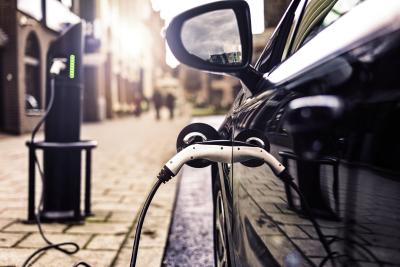- Akshay Kaul
- Director General, Infrastructure
- Publication date
The energy landscape has changed forever and a key priority now needs to be building a sustainable system that is no longer at the mercy of international prices.
A vital part of this process will be investing in the infrastructure required to meet the needs of this future system.
Our primary objective is, and always has been, to protect new and future consumers so for Ofgem it’s equally vital that energy bill payers are not having to pay extra, especially at the current time.
Today we’ve announced a package of spending that, over the next five years, will be used to build the sustainable and affordable infrastructure needed for a low carbon, cheaper energy future for the UK.
And crucially, it won’t cost you, the consumer, any more than you currently pay.
By reducing profits for network operators and increasing efficiencies, we have been able to commit to a major investment package without any increase in network charges on bills. Every pound spent represents clear value for money for electricity consumers.
The recent and ongoing price volatility in the energy market and security of supply issues have shown beyond all doubt that a future powered by imported fossil fuels is simply not an option.
If we are to protect Britain’s homes and businesses from volatile global gas prices and the kind of geopolitical threats we’ve seen this year, we need to break our dependence on fossil fuel imports.
Britain has the opportunity to lead the way in reducing carbon emissions and making the most of renewable, homegrown energy.
More and more aspects of our lives will be powered by low carbon, locally produced electricity. Millions of cars will switch from diesel or petrol to electricity, gas boilers will be changed for electric ones and heat pumps resulting in a major surge in our electricity use.
We will be powered by intermittent generators such as solar, wind and wave where, some days, when it’s windy and sunny, we will have more energy than we need and other days, when it’s cloudy or still, we will have less. We need to modernise our energy system to change how we use and store electricity to make the most of these new technologies and to be as efficient as possible.
This investment is a big step towards the fundamental changes to the electricity distribution networks required to meet these needs.
Over the next five years this investment will
- Upgrade the electricity grid to connect to more renewable power, handle millions of electric cars and heat pumps coming online and allow for a flexibility that will keep us one step ahead as new low-carbon technologies emerge.
- Enable a flexible smart network that allows faster charging, clearer information for users on how to use energy in better ways and harness the huge potential of technology and innovation that will change the way we use and store energy in the coming decade.
- Apply the lessons learnt from the storms of the last 12 months to boost our resilience to severe weather events.
- Push network companies to increase the number of eligible customers signed up to the Priority Services Register and expand the support offered in the event of power cuts.
There are plans to increase rollout of proactive measures such as battery packs and emergency generators and to scale up wider support for people in vulnerable situations including support to improve energy efficiency of homes.
The challenges faced in recent times have made the need for change clear and investment and innovation is essential to move us away from a system that no longer serves current or future consumers.
The package announced today is another big step towards creating an energy system for the future that gives us a clear path away from the price volatility and security of supply issues we are currently living through to a future where we create clean, cheaper, homegrown energy.

